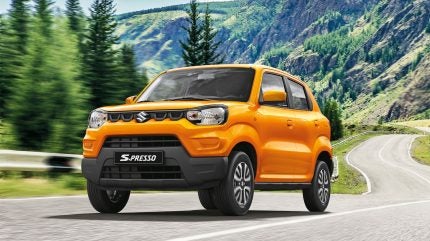
Suzuki said it would end vehicle production in Thailand by the end of 2025, following a review of its “global production structure”.
The local manufacturing subsidiary, Suzuki Motor (Thailand) was established in 2011 after the Thai government launched the Eco-Car programme in 2007 which provided tax concessions for small, low fuel consumption cars.

Discover B2B Marketing That Performs
Combine business intelligence and editorial excellence to reach engaged professionals across 36 leading media platforms.
In the last few years, the Thai government has shifted its focus to promoting sales and investments in the battery electric vehicle (BEV) segment which has resulted in a growing number of Chinese brands entering the market with plans to launch local production.
Suzuki’s plant, in Rayong province, makes the Swift, Ciaz and Celerio models. It employs around 800 people and produced just 7,579 vehicles in the last fiscal year (ending 31 March 2024), including 1,272 for export. The company sold 10,800 vehicles in Thailand in this period, including imports. At its peak the Rayong plant produced around 60,000 vehicles annually.
The automaker said, as part of its transition to “carbon neutrality and electrification globally, Suzuki had been considering optimising global production sites within the group. Consequently, we decided to close the SMT plant by the end of 2025”.
Suzuki said it would continue to provide aftersales services to meet customer demand while sales activities would switch entirely to vehicles produced at other plants in south east Asia as well as in Japan and India with an increasing focus on hybrids and BEVs.
According to reports in Japan, Suzuki aims to have six BEVs in its lineup by fiscal 2030 with its first BEV model in India set to go into production next year for local sale and export, including to Japan and Europe.
Following Suzuki’s announcement, Thai prime minister Srettha Thavisin said he was confident other auto manufacturers in the country would not follow its lead, saying his government “still attached importance” to the production of Japanese combustion engine vehicles, adding meetings had taken place with manufacturers such as Toyota, Isuzu, Honda, Mitsubishi and Mazda to discuss their specific requirements.






